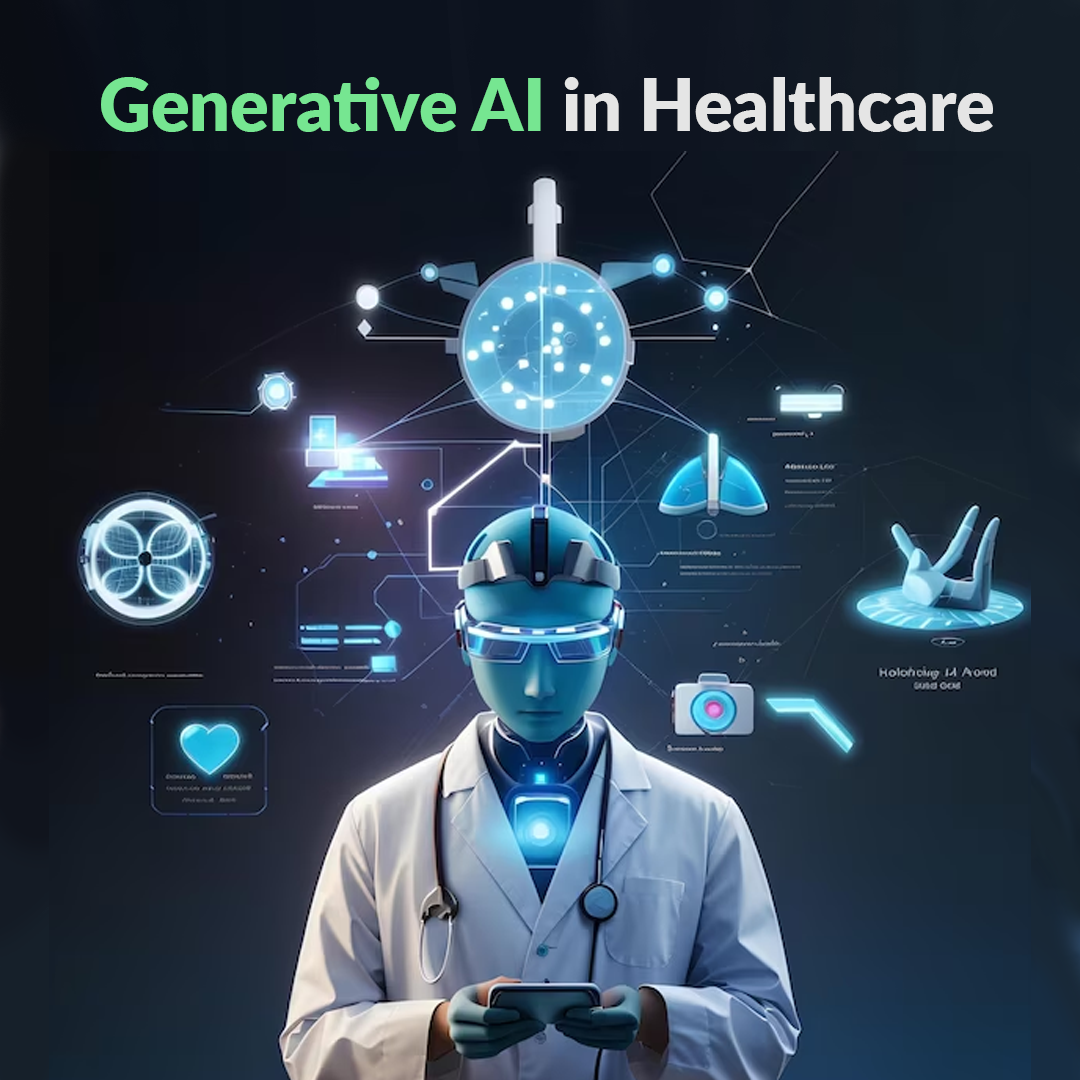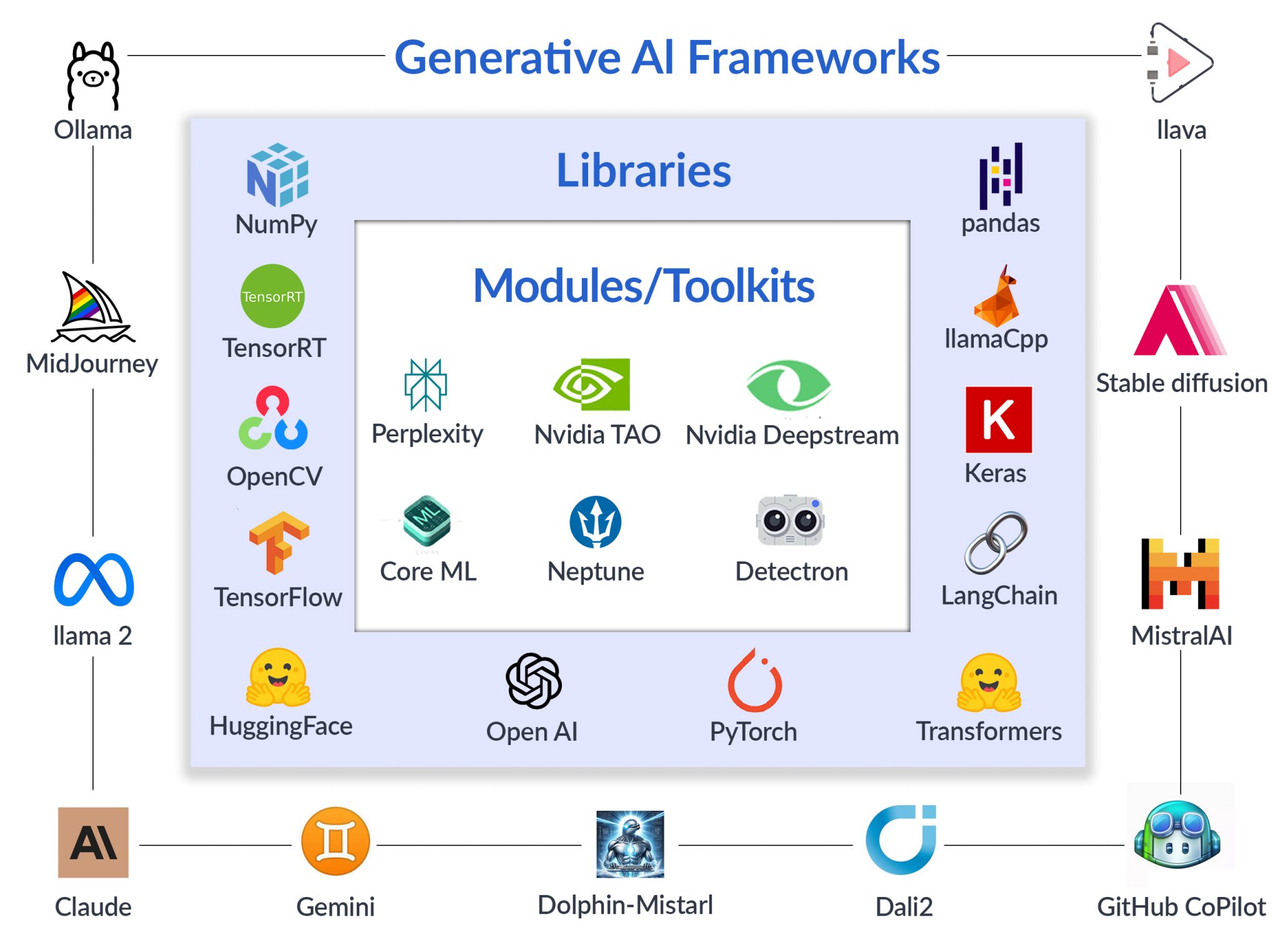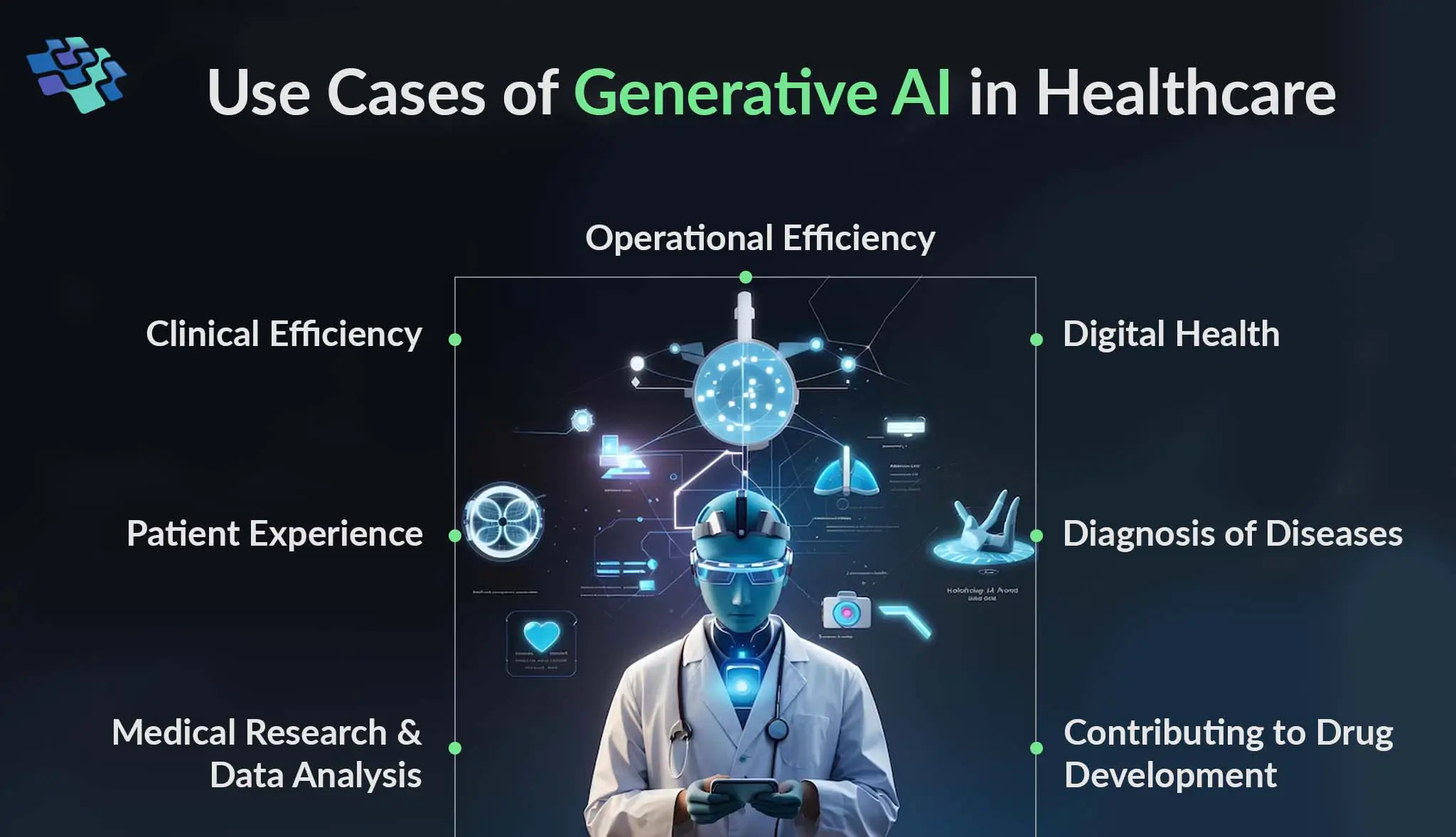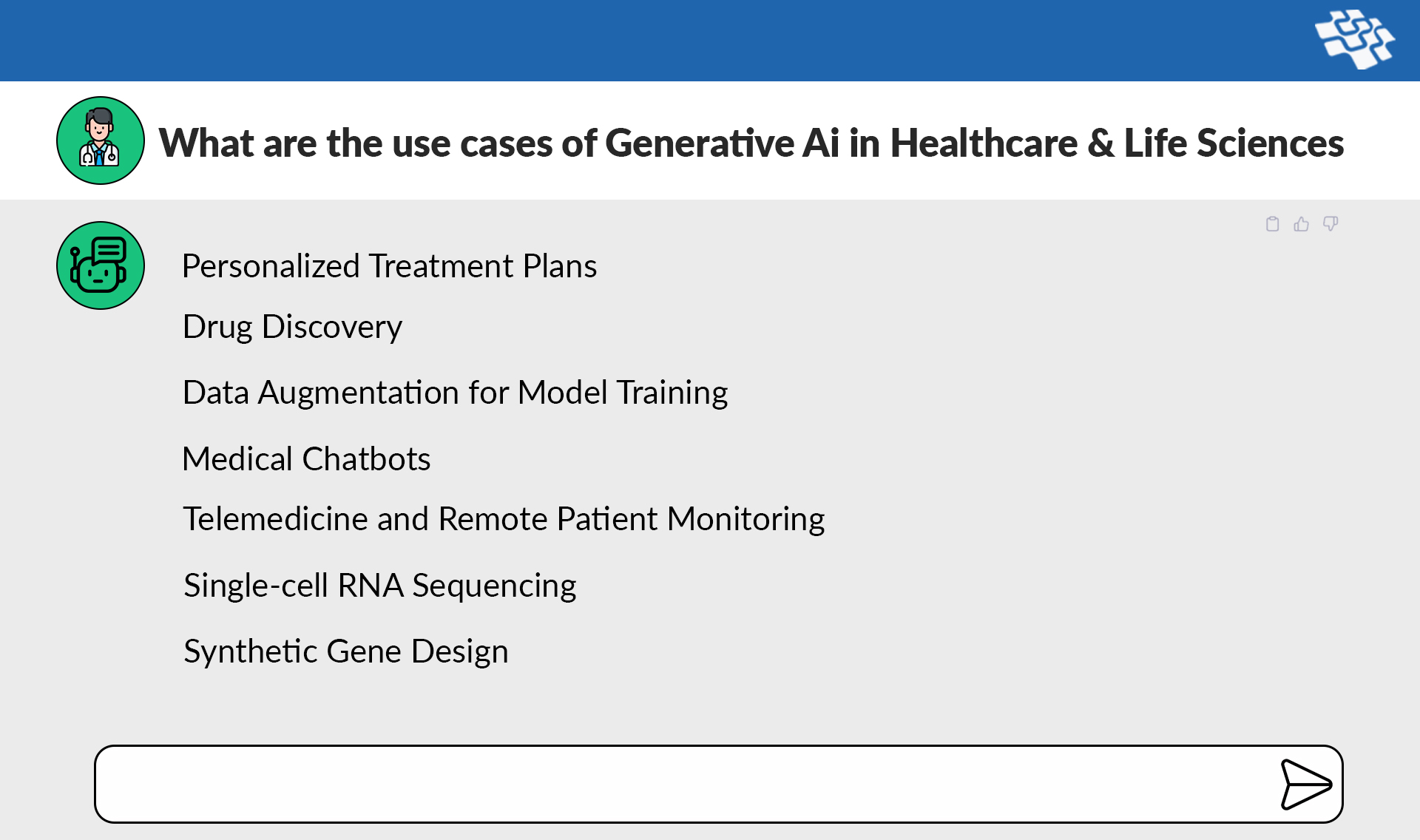7 Most Crucial Use Cases of Generative AI in Healthcare
Read our blog on use of Generative AI in healthcare and its use cases for a medical and life sciences shake-up like before! plications of Generative AI and helping to realize its full potential.

Solve Conversational Complexity with Advanced Generative AI Models, Crafting Intelligent Chatbots for Seamless Customer Interactions

“Many healthcare organizations are more likely to start with applying gen AI to administrative and operational use cases, given their relative feasibility and lower risk. In the near term, insurance executives, hospital administrators, and physician group operators may be able to apply gen-AI technology across the value chain.”– Mckinsey
Generative AI in Healthcare: Overview
Generative AI in healthcare refers to advanced AI models created to meet the requirements and challenges of medical practice and research. Among the main functions of Generative AI in healthcare models are the following:
- Through the development of detailed simulations based on real-world data, researchers and medical professionals can see circumstances and test hypotheses in a safe setting.
- Healthcare providers can make better decisions about treatments and interventions when patient outcomes are accurately predicted.
- To fill in any gaps in the original dataset and expand the breadth of information, unique data samples are created.
These applications of Generative AI in healthcare open new avenues for medical study and practice, and they may have an impact on how medical professionals evaluate data and make decisions.
How does Generative AI in Healthcare Work?
Generative AI is used in the healthcare industry to create customized treatment plans, create synthetic medical pictures, and even model patient scenarios for training purposes. This game-changing potential demonstrates how Generative AI can be a powerful innovation catalyst, forming meaningful connections between the domains of creativity and data. It regulates data-driven creativity in a cutting-edge manner. Its fundamental network designs are generative models, and the most common ones are Variational Autoencoders (VAE) and Generative Adversarial Networks (GAN). These models go through two stages of development: learning and creation. During the learning phase, the AI system examines a large dataset, identifying complex links, patterns, and nuances. Through this immersion, the model can internalize the distinctive qualities of the data it encounters and understand its fundamental nature. Later, during the content generation stage, the model uses the knowledge it has gained to generate new material on its own. By use of an ongoing interaction between generation and evaluation, the model iteratively improves its output, gradually approaching authenticity.
7 Most Crucial Use Cases of Generative AI in Healthcare

1. Medical Research & Data Analysis
To increase scientific understanding and enhance patient outcomes, medical research, and data analysis entail methodically looking into and analyzing health-related subjects. Generative AI in healthcare can automate data extraction and document review operations while analyzing vast volumes of medical data rapidly. By doing this, researchers can focus on more important areas of their study and spend less time on administrative procedures. Complex medical texts, laws, and case law can be understood and interpreted by Gen AI through its NLP capabilities. This improves the effectiveness of obtaining pertinent data from a variety of complex healthcare records. Extensive medical documentation can be condensed by Generative AI, giving researchers clear overviews. This facilitates quicker understanding and decision-making, particularly when working with large amounts of medical information. The integration of disparate healthcare data sources can present certain issues that Gen AI in healthcare might help to overcome. It can provide insights into possible outcomes by utilizing previous medical data, which enables researchers to plan successful strategies and make well-informed judgments for medical research initiatives.
2. Patient Experience
Generative AI in healthcare crafts personalized treatment regimens by analyzing patients’ medical history, genetic data, and lifestyle factors. For instance, it identifies cancer-causing genetic mutations by scrutinizing tumor DNA, enabling precise treatment recommendations tailored to individual variations. Additionally, Gen AI assists in outcome prediction by mining extensive patient datasets for patterns associated with diverse clinical results. This predictive prowess empowers medical practitioners to make informed decisions, optimizing patient care and management strategies. By leveraging advanced algorithms to process complex information, Generative AI revolutionizes healthcare delivery, offering tailored solutions for each patient’s unique needs. With its ability to decipher intricate genetic markers and anticipate treatment outcomes, this technology marks a significant leap forward in personalized medicine, promising improved efficacy and patient outcomes across various medical domains.
3. Clinical Efficiency
To identify and diagnose various health disorders at their earliest stages, researchers can use medical imaging, lab results, and other patient data to train Generative AI models. Skin cancer, lung cancer, hidden fractures, early Alzheimer’s symptoms, diabetic retinopathy, and other conditions can all be detected by these algorithms. AI models can also identify biomarkers linked to specific conditions and forecast the course of diseases. Medical imaging tests, such as MRIs, CT scans, and PET scans, are essential components of patient care because they enable prompt diagnosis and identification of catastrophic injuries. Generative AI in healthcare can help medical practitioners by expediting the imaging process and providing quicker responses. In conjunction with machine learning, it can also reduce scan times. Without the help of human assistance, it can autonomously identify anomalies in patient images. Faster patient care is a promising result of these enhanced capabilities and is a crucial touchpoint when time is limited.
4. Contributing to Drug Development
The average cost of developing a new medicine, including unsuccessful ones, is estimated to be between $1 and $2 billion. According to a research, Generative AI in medicine might nearly halve the time required to develop and evaluate new pharmaceuticals, saving the pharmaceutical industry an estimated $26 billion in annual costs. It can also save expenses related to clinical studies. To expedite the drug discovery process, pharmaceutical companies can use Generative AI in pharma by designing and creating novel molecules with desired features that researchers can subsequently assess in lab settings, estimating the characteristics of new protein and medication candidates, creating virtual compounds that have a high binding affinity to the target and can be tested in computer simulations to cut costs, as well as using molecular structure analysis to predict the adverse effects of new treatments.
5. Operational Efficiency
Generative AI revolutionizes healthcare workflows by automating clinical coding, patient consent management, and referral letter generation. Through intelligent document processing, it accelerates administrative tasks, enhancing accuracy and efficiency. By capturing and summarizing doctor-patient interactions, Generative AI in healthcare facilitates clinical documentation, simplifying complex medical terminologies and expediting record-keeping. Its ability to compile data and generate electronic health records streamlines documentation processes instantly. Moreover, by improving message composition and overall health system efficiency, Gen AI enhances communication and operational effectiveness. This technology represents a significant leap forward in healthcare administration, enabling practitioners to focus more on patient care while ensuring meticulous documentation and streamlined processes.
6. Digital Health
Healthcare companies can develop medical chatbots using Generative AI to provide patients with personalized medical guidance and recommendations. This involves analyzing a patient’s medical history, genetic data, lifestyle choices, and other factors to create customized treatment plans. For instance, the AI algorithm can identify genetic abnormalities contributing to cancer by examining tumors, and then devising precise treatment strategies targeting these variations. Furthermore, Gen AI aids medical professionals in predicting patient outcomes by identifying patterns within extensive patient datasets. This enables informed decision-making based on anticipated results. By leveraging advanced algorithms, healthcare providers can tailor treatment regimens to individual patients, improving efficacy and patient satisfaction. Overall, the integration of Generative AI in medicine facilitates personalized medicine and enhances the ability to anticipate and address patient needs effectively.
7. Diagnosis of Diseases
Generative AI has the potential to transform the diagnosis of disease by using massive databases of medical pictures to find patterns linked to diseases. Dermatologists, for example, can use this technique to identify skin cancer. The developed solution can look through a big collection of skin imaging data and find trends that could indicate skin cancer. As a result, the physician can improve the outcome and diagnose patients more quickly and accurately. Similarly, by analyzing medical pictures like CT, X-ray, and MRI scans, Gen AI can help expedite the identification of illnesses. By learning from a large sample of medical photos, the program can identify patterns associated with certain diseases. Learning from a huge CT scan dataset, the system can find patterns suggestive of lung cancer, like how it can identify skin cancer.
Future of Generative AI in Healthcare
- Generative AI holds immense potential to revolutionize the healthcare sector, promising advancements in diagnosis, treatment, and patient care. However, its integration also brings forth significant ethical and legal considerations that must be addressed to ensure responsible implementation.
- One primary concern revolves around safeguarding patient privacy and maintaining the security of sensitive medical data. As AI systems analyze vast amounts of personal health information, there’s a risk of data breaches or unauthorized access, highlighting the need for robust security measures and stringent privacy protocols.
- Another critical issue is ensuring equitable access to AI-powered healthcare services for all patients.
- Standardizing practices across healthcare settings is essential for the effective deployment of Gen AI. Consistency in data collection, algorithm training, and clinical decision-making protocols is crucial to maintain quality standards and mitigate variability in outcomes.
- Despite these challenges, overcoming them will unlock the full potential of Generative AI in healthcare. Once ethical and legal frameworks are established, AI-driven systems can streamline processes, optimize resource allocation, and improve clinical decision-making.
- With enhanced efficiency and data-driven insights, healthcare providers can deliver more personalized and effective treatments tailored to individual patient needs. This will ultimately lead to better health outcomes and a more accessible healthcare landscape for all.
- Looking ahead, the integration of Generative AI is poised to usher in a new era of healthcare marked by innovation, improved patient experiences, and equitable access to high-quality medical services.
How NextGen Helps You Use Generative AI for Healthcare
Many Generative AI platforms prioritize speed over customer engagement and health outcomes, emphasizing rapid output generation for scalability rather than fostering meaningful interactions. At NextGen Invent, our focus is developing Generative AI solutions that motivate patients to act, bridging the gap between their healthcare needs and desired behaviors. Through our digital solutions, we assist patients, members, and healthcare consumers in achieving various health objectives, including scheduling screenings, consulting specialists, or enrolling in care management programs. Our Generative AI development services have already demonstrated impressive results, with healthcare organizations experiencing a notable 28% increase in engagement. By leveraging our technology, healthcare providers can enhance patient involvement and strengthen digital relationships, ultimately leading to improved health outcomes and satisfaction.
For those interested in exploring the potential of Generative AI in healthcare, contact us to reach out and learn more about how our innovative solutions can drive positive change in patient engagement and overall healthcare delivery through our Generative AI software development services.
Related Blogs

Adoption of Generative AI in Healthcare & Life Sciences
Generative AI in healthcare and life sciences is rapidly transforming the landscape, offering immense potential to revolutionize the industry. It’s ability to analyze large-scale medical data and create new content elevates the standard of care, increases accessibility, and reduces disparities in research and treatment.

Computer Vision in Healthcare: Transformation is Here
Within healthcare, the efforts of medical professionals play a pivotal role and have a direct impact on patients’ well-being. Advanced computer vision in healthcare technologies, particularly in object recognition, empowers physicians with an unmatched ability.

How is AI Changing the Future of Precision Medicine?
In the future of precision medicine, the fundamental practice of gathering patient information remains pivotal. However, a transformative wave powered by digital health and disruptive technologies, including wearable sensors and artificial intelligence, is reshaping healthcare.
Stay In the Know
Get Latest updates and industry insights every month.
